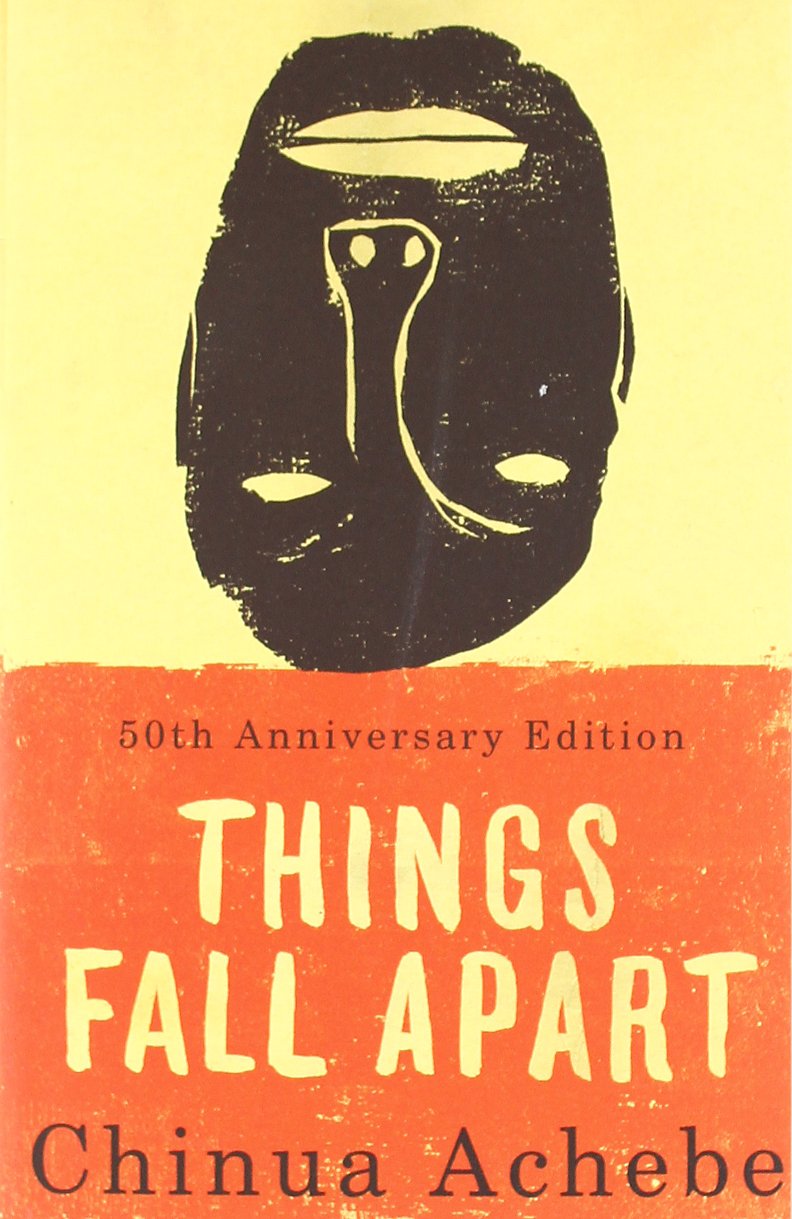 |
| Copyright © 2008 Beowulf Sheehan/PEN American Center |
Chinua Achebe
was undoubtedly one the greatest African writers. A precursor. His novel
“Things fall apart” is the result of a feeling of revolt thus the need for an
African to shed lights on the pre-colonial Africa and the shock that have been
the first encounters with the West. It’s been fifty years in 2008 since the
book has been published but it’s still the most-sold African novel.
The book is
about a man named Okonkwo, a warrior and a talented farmer who’s willing to
regain the prestige his family lost due to his lazy father. The story takes
place among an Ibo tribe, one from southeast Nigeria, in the pre-colonial
Africa. Chinua Achebe introduces us to a though, complex, ambitious man who is
seeking personal achievement and the clan recognition. The author has that very
sober way to tell the gradual rise, its peak and then the unexpected exclusion
from the clan. The originality and thus strength of this novel lie in the
thorough description it makes of the founding principles of that Ibo community.
Beliefs, initiatory rites, funeral and wedding ceremonies all closely related
to the agricultural production or justice, social values, the relations with
other tribes, human sacrifices…everything in this book is recounted with
lucidity. There’s no trace of prejudice, indulgence or self-whipping.
When Okonkwo is
forced to exile with the whole family (including three wives) after he
seriously trespassed one of the social codes, it brought him to put things into
perspective, observe the hospitality of his mother’s tribe where he’s serving
his sentence and perceive the first news of the arrival of the Europeans on the
igbo land. That first contact between the two civilizations led to
misunderstanding and violent frictions.
Things fall
apart. The author then describes in the second part of the book, with great
erudition, the civilization shock following the arrival of the first Christian
missionaries. Chinua Achebe highlights the impact of their evangelistic
message, the tension caused by the collusion between some missionaries, the
colonial administration and the traditional organizations whose spiritual unity
is jeopardized by the rising of the Christian community and the questioning of
some practices like the infanticide of twin babies. There will be a failed
attempt to initiate discussion. The rest is about pride, fear, hatred and
ignorance.
I’ve rarely
read a book whose author has such a good knowledge of the Christian doctrine
and the African traditional beliefs. The author masters the implied
philosophies beneath the frontal collision and the distance he keeps with the
story make this novel remarkable. This is a very complete work which stays very
accurate today. A classic.
[In 2007
Chinua Achebe received the Man Booker international Prize for his entire
career, a prize which rewards the best English-writing authors. He was preceded
by Ismaïl Kadare. Chinua Achebe died this year at age 83.]
Article original traduit du français par Titilayo Agbahey
Paperback: 209 pages
Publisher: Anchor (September 1, 1994)
Language: English

No comments:
Post a Comment